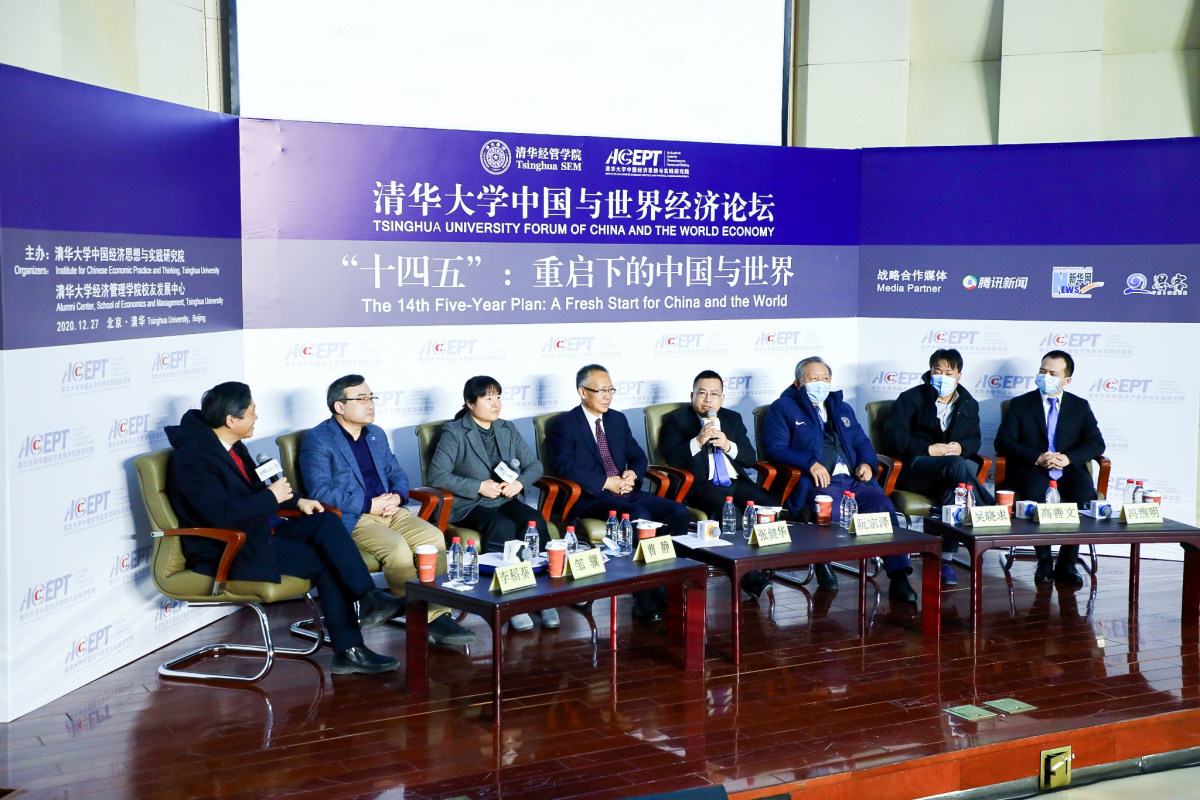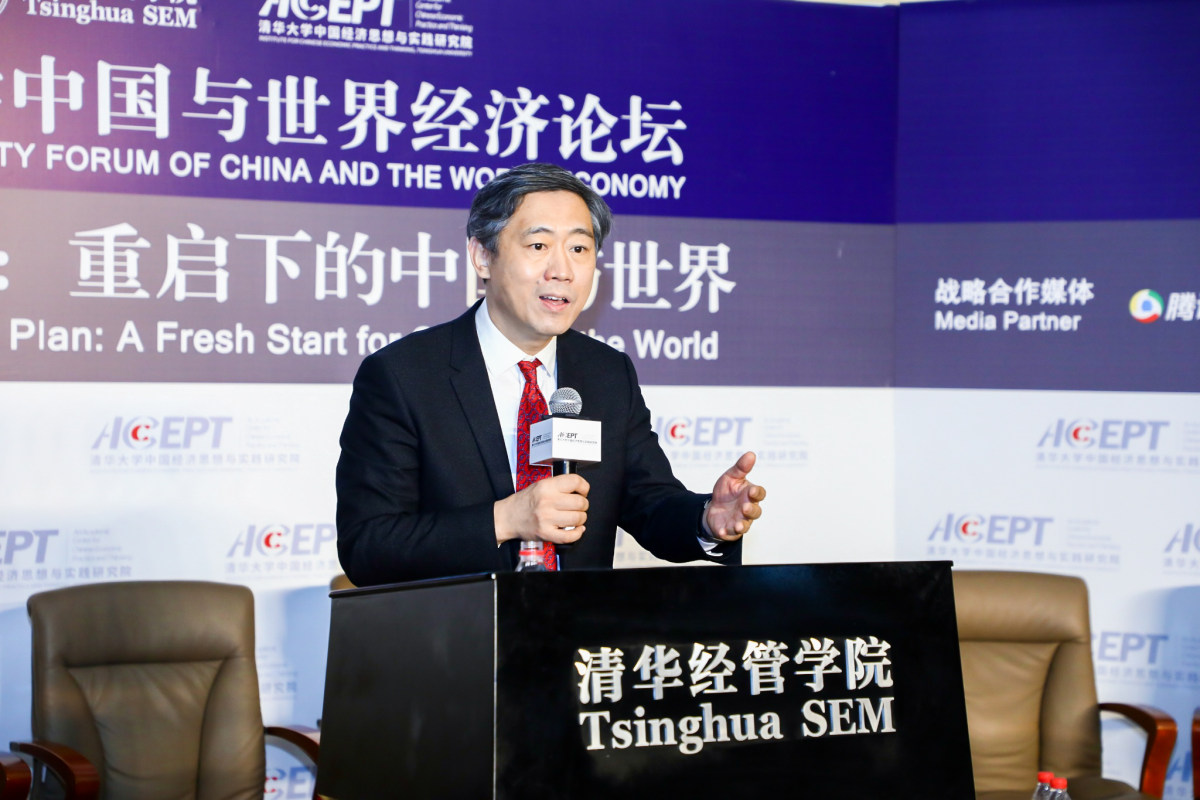On December 27, the 40thTsinghua University Forum of China and the World Economy themed “The 14thFive-Year Plan: A Fresh Start for China and the World”, jointly organized by the School of Social Sciences, the Academic Center for Chinese Economic Practice and Thinking (ACCEPT) and the Alumni Development Center of the School of Economics and Management (SEM), Tsinghua University, was held at the conference hall of Weilun Building. Li Daokui, Director of the ACCEPT, Ruan Zongze, Executive Vice President of China Institute of International Studies (CIIS), Zhang Jianhua, President of Hua Xia Bank, Wu Xiaoqiu, President of the Research Institute of Capital Market/former Vice-President of Renmin University of China, Gao Shanwen, Chief Economist of Essence Securities, Zou Ji, CEO & President of Energy Foundation China, Cao Jing, Associate Professor of the Department of Economics, SEM, and Feng Xuming, Deputy Director of the Department of Integrated Economic Research, National Academy of Economic Strategy, Chinese Academy of social sciences, were invited to the Forum. The Forum was chaired by Li Keaobo, Executive Deputy Director of the ACCEPT. Professor of Economics Francis T. Lui from Hong Kong University of Science and Technology, and Professor of Economics Jason Furman from Harvard Kennedy School, attended the event online.

At the Forum, Li Keaobo, together with research fellows Lu Lin, Li Bing and Guo Meixin at the ACCEPT, released the Analysis and Prediction of Chinese Macro-economy report titled “Start of the 14thFive-Year Plan: Rebuilding the Economic Geography to Boost the Domestic Circulation; Readjusting Economic and Trade Ties to Open Up New Space for International Economy” on behalf the ACCEPT. As introduced by Li, China’s economy has basically returned to normal growth after the pandemic, thanks mainly to quickly restored production speed and increased exports. However, as income growth of middle- and low-income groups slows down and the consumption tendency declines, weak consumption remains a basic feature of China’s economic development.
The report states that the key to starting the 14thFive-Year Plan and implementing the new development philosophy lies in how to effectively deal with the relationship between the government and the market. Such relationship should be positive and complementary, rather than substitutional, and the government and the market should work toward the same direction.

Li Daokui argued that the demand for economic growth in China is weak, which is especially the case during the COVID-19 outbreak. In the next stage, it is imperative to focus on the rebuilding of economic geography to foster new areas of medium- to long-term growth, and safeguard the wellbeing of the public by catering to people’s housing and living needs. In particular, China should promote regional economic development in areas that experience outflows of population and allocate their important industries matching the comparative edges of these areas to ensure that the economy will not glide down in these areas and the per capita GDP will grow at the same rate as other areas. He also pointed out that China has entered the new era of digital economy and the anti-monopoly regulation should be more and more targeted and avoid “self-inflicted wounds” to maintain China as a world leader on the Internet.
At the Forum, scholars also had discussions on hot issues such as rising energy prices, the population gap between generations, macro debt management, the rebound of non-performing assets, prevention of financial risks, rising commodity prices, stock market fragmentation, clean energy development and China-US Relations using their respective expertise, and exchanged views with the audience.